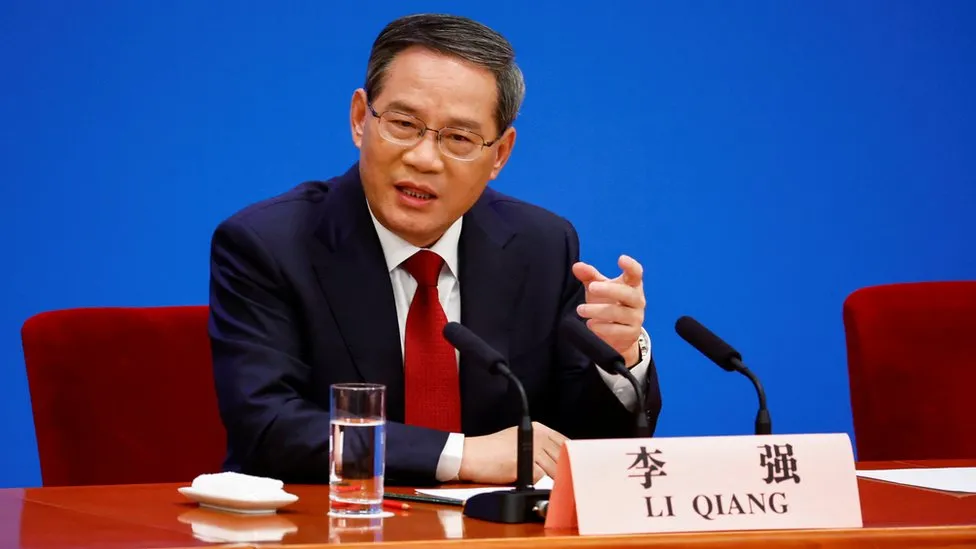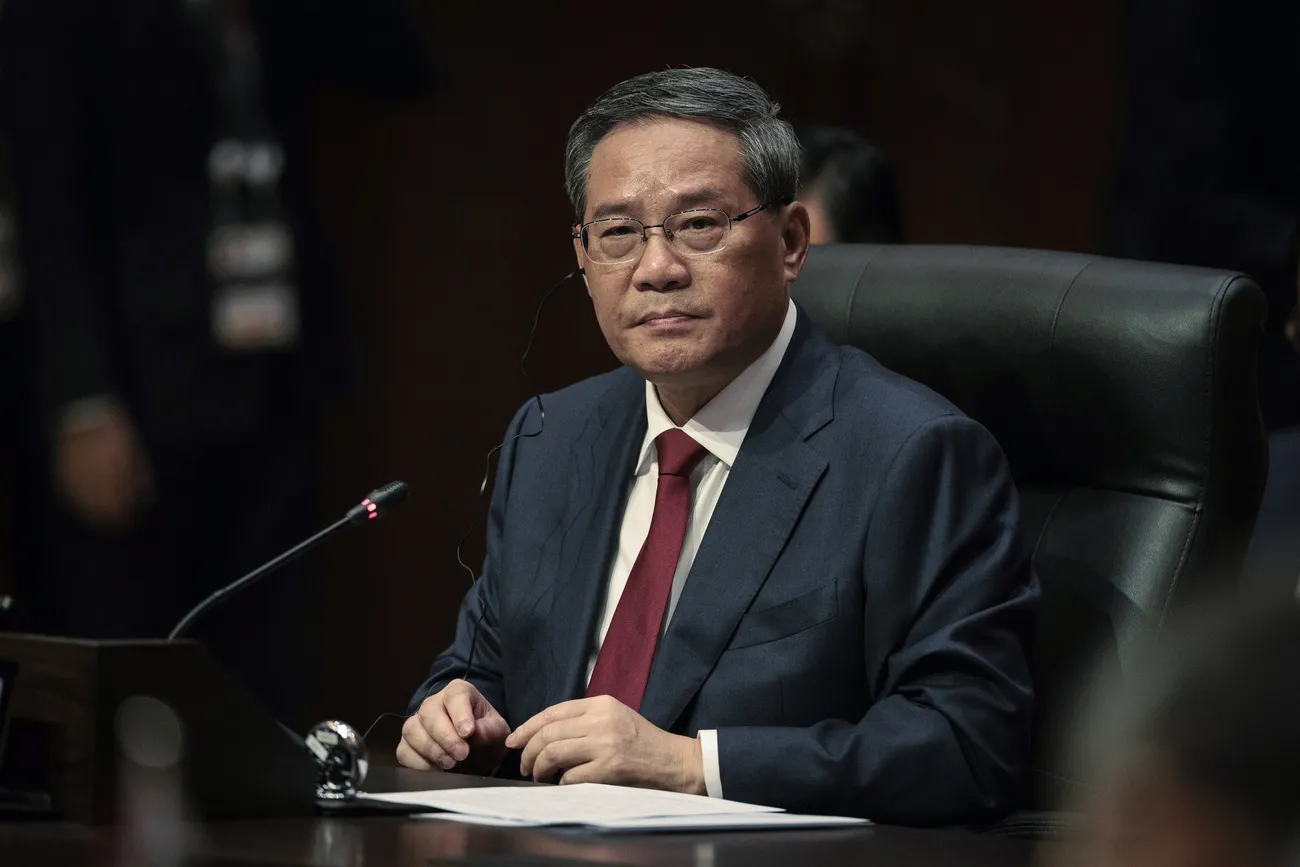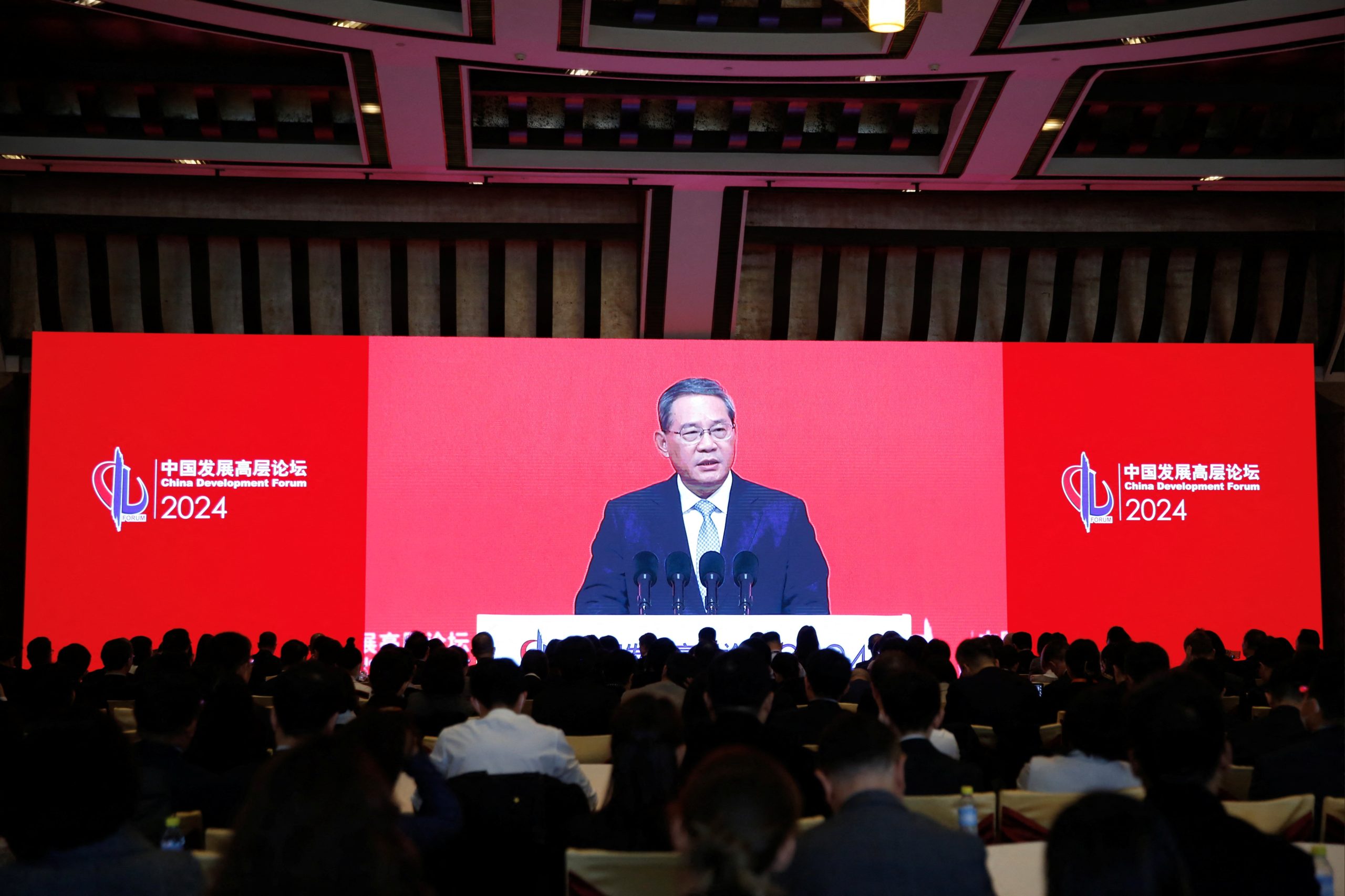Premier Li Qiang addressed a diverse audience of global CEOs and Chinese policymakers on Sunday, emphasizing China’s commitment to studying issues related to market access and cross-border data flows.
He announced forthcoming regulations in these domains and extended a warm invitation to companies worldwide to invest in and deepen their engagement with China.
Highlighting China’s strategic focus, Li underscored efforts to foster emerging industries, including biological manufacturing, artificial intelligence, and the data economy. These initiatives were shared during the China Development Forum in Beijing.

Recent policy adjustments were also highlighted. Beijing relaxed rules on foreign investment earlier in the week, responding to a notable 20% decline in investment inflows during January and February.
Additionally, China’s cyberspace regulator eased security regulations on data exports, alleviating concerns among foreign firms operating within China.
During the two-day forum, Li outlined China’s economic standing, noting the country’s relatively low inflation rate and manageable central government debt burden, which allows for further macro policy maneuvers.
He cited effective measures implemented last year to mitigate property and debt risks, including the issuance of 1 trillion yuan ($140 billion) in ultra-long special treasury bonds to stimulate investment and stabilize economic growth.

Despite its position as the world’s second-largest economy, China faces challenges such as a property crisis, local government debt issues, industrial overcapacity, deflationary risks, and declining foreign investment.
Notable figures like Apple CEO Tim Cook and Bridgewater Associates founder Ray Dalio are regular attendees.
While Premier Li does not plan to convene with foreign CEOs during this year’s forum, recent reports suggest President Xi Jinping intends to meet with a group of U.S. business leaders afterward, signaling Beijing’s ongoing efforts to attract American investment amid rising foreign capital outflows.
Foreign firms have expressed reservations about China following the relaxation of strict COVID-19 measures in late 2022, citing concerns regarding the business environment, economic recovery, and political uncertainties.
To counteract the slowdown in foreign investment, a new action plan aims to level the playing field for foreign firms, particularly in China’s expansive manufacturing sector, while promoting growth in sectors such as telecommunications and healthcare.







Leave a Reply